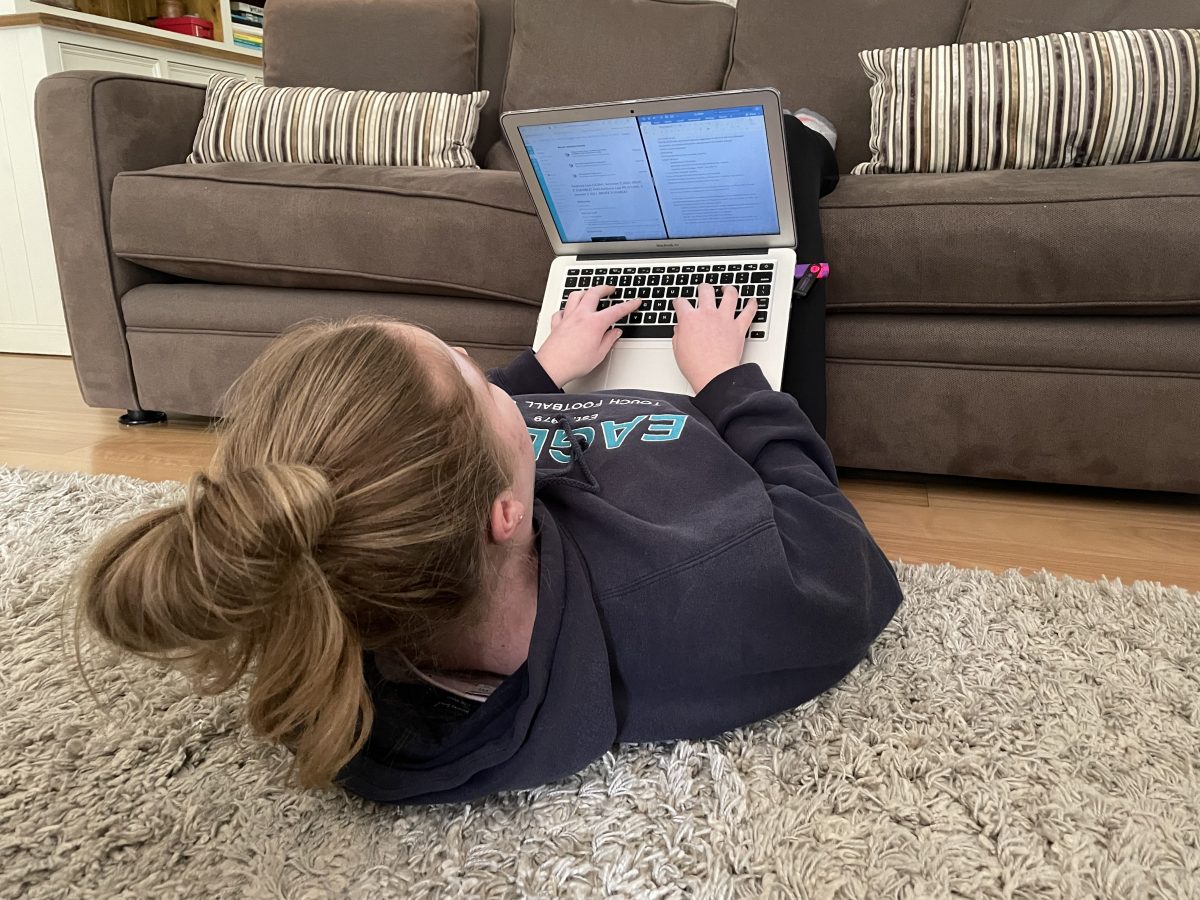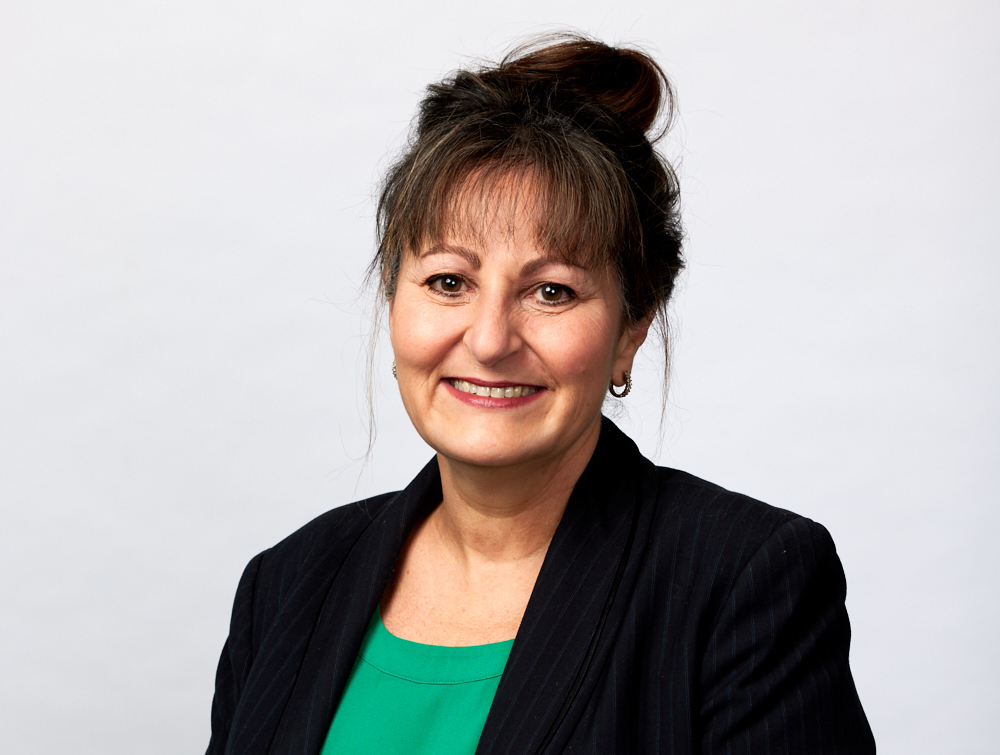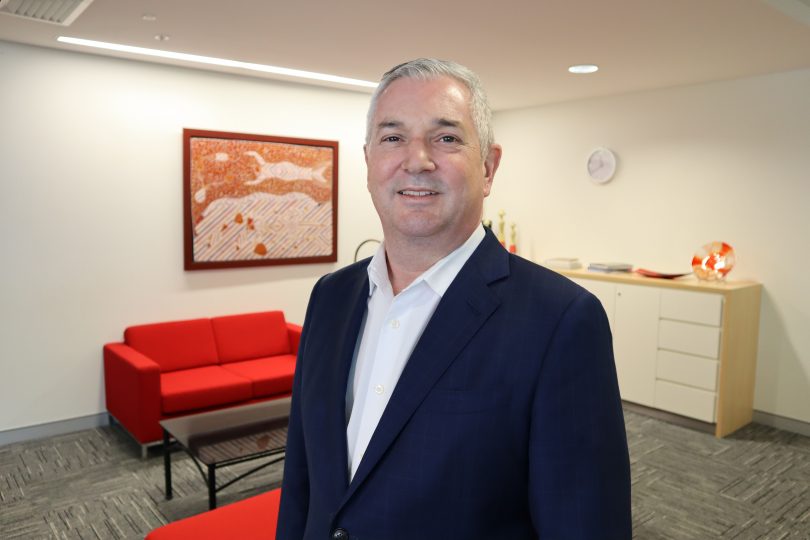
Working from home might carry new risks with it, which employers need to be aware of. Photo: Lottie Twyford.
As the trend towards hybrid working continues in this “new normal”, employers are being reminded they still have a duty to ensure an employee’s safety – even when they aren’t in the office physically.
WorkSafe ACT Commissioner Jacqueline Agius has asserted that a workplace’s obligations remain in place no matter where workers are.
She said isolation had emerged as a risk associated with working from home and was one that needed to be managed – through daily meetings or having in-office days for whole teams at a time.

WorkSafe ACT Commissioner Jacqueline Agius stated employer responsibilities did not simply vanish when people were working from home. Photo: WorkSafe ACT.
“Further hazards include whether or not the home environment is a less safe place to be than an office, for instance,” Ms Agius told an annual reports hearing last month.
“There have been cases [where that was the case]. Employers have a duty to manage those risks and one way might be bringing that person to work in the office instead.
“Those challenges might relate to coercive control or interruptions which are stopping them from doing their work.”
The commissioner referenced a case in which a woman (who was killed at home in a family violence incident and her children were initially denied a death benefit) was determined to have been killed within her general work hours so the employer’s work compensation scheme was liable.
Government officials confirmed the ACT Government as an employer was committed to making hybrid working safe and feasible.
Chief Minister Andrew Barr earlier this year said ACT public servants would not be forced to return to the office as “consumer fodder” after last week declaring the era of 9-5, five days a week working in the office for the ACT Public Service was over.
A recent survey showed public servants were wholeheartedly embracing the era of flexible working and only really wanted to go into the office if there was a good reason to do so.
It’s not just in the public sector where these kinds of discussions are happening, either, with considerations about safety, isolation and even ergonomics going on in the private sector.

CEO Canberra Business Chamber Graham Catt said discussions were continuing as working from home moved from a crisis response to a more normalised, hybrid arrangement. Photo: Supplied.
Canberra Business Chamber CEO Graham Catt said discussions about hybrid working were maturing as the COVID-19 crisis became increasingly normalised.
He noted part of this was about moving from a dichotomy of either at-home or in-office to a hybrid arrangement.
“We’re also hearing businesses asking questions about how they can actually ensure the home is safe and workers are in the right place,” he said.
“Coming into the workplace – at least once or a couple of times a week – is a good way for employers to check in and make sure things are OK.
“We spend a majority of our week working and the social aspect of that is important.”
Then there are the more practical risks associated with working from home, including whether people have a good office setup.
“If you’re sitting at the kitchen bench with your laptop, that might not be the most ergonomic setup.
“The basics of safety also come into it – do people know where the fire exits are?
“A person’s WFH [working from home] setup needs to be assessed against some specific design parameters but the challenge is resource related for smaller organisations to actually undertake those checks.”
In the end, it comes down to trust and communication, he said.
But Mr Catt is clear that hybrid working is the way of the future, and it’s going to be part of attracting and retaining skilled staff in an increasingly tight environment.














